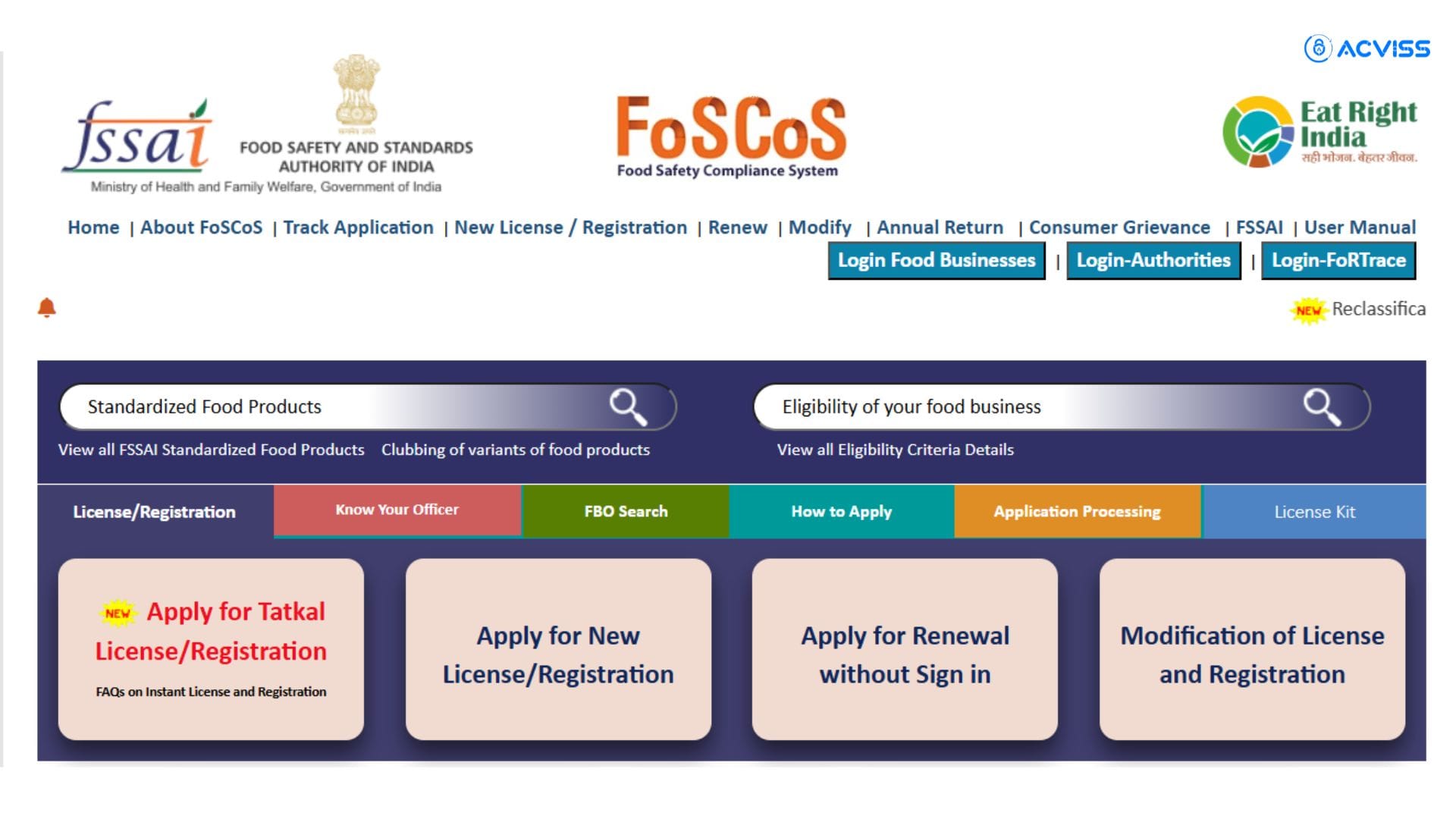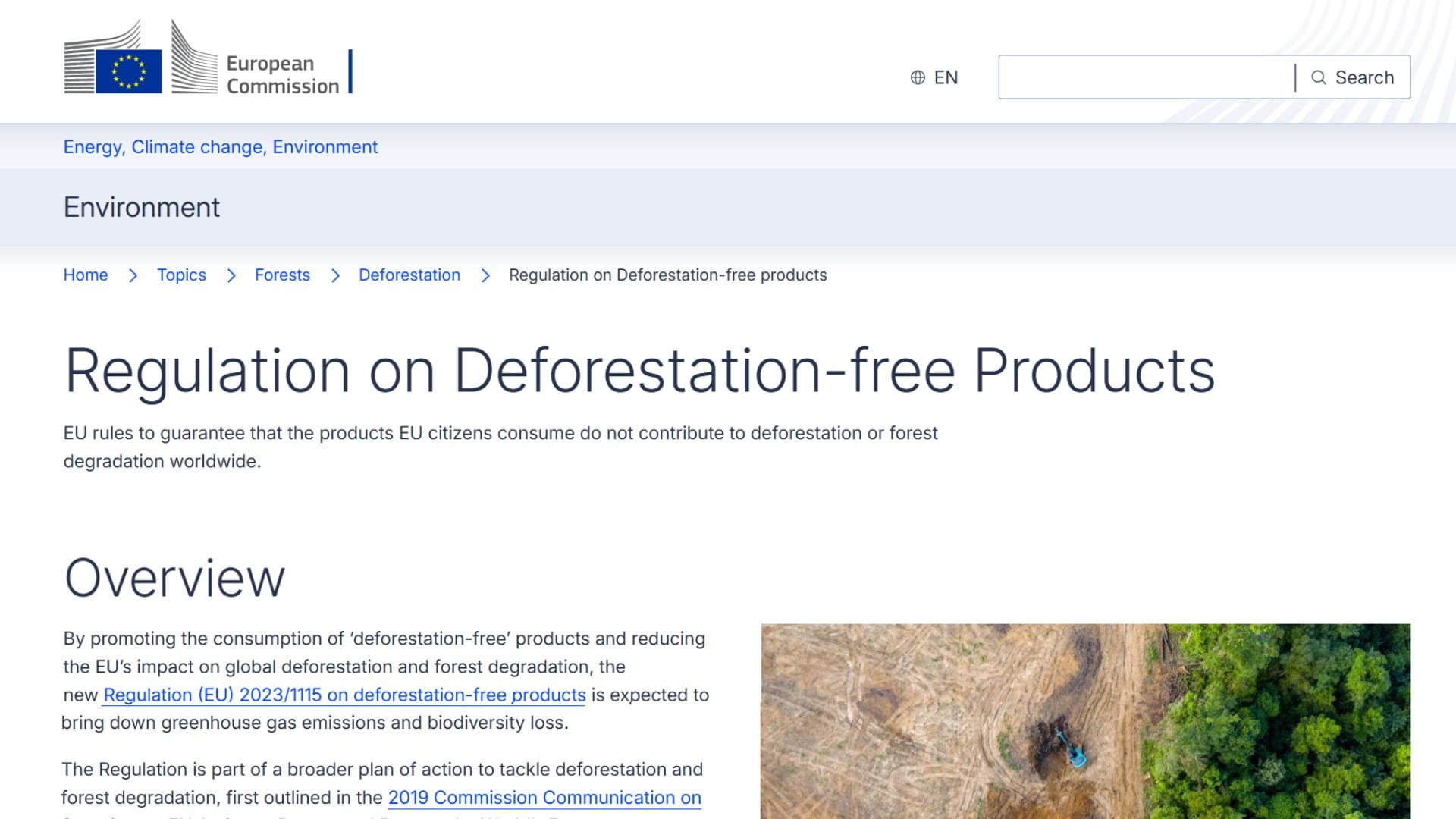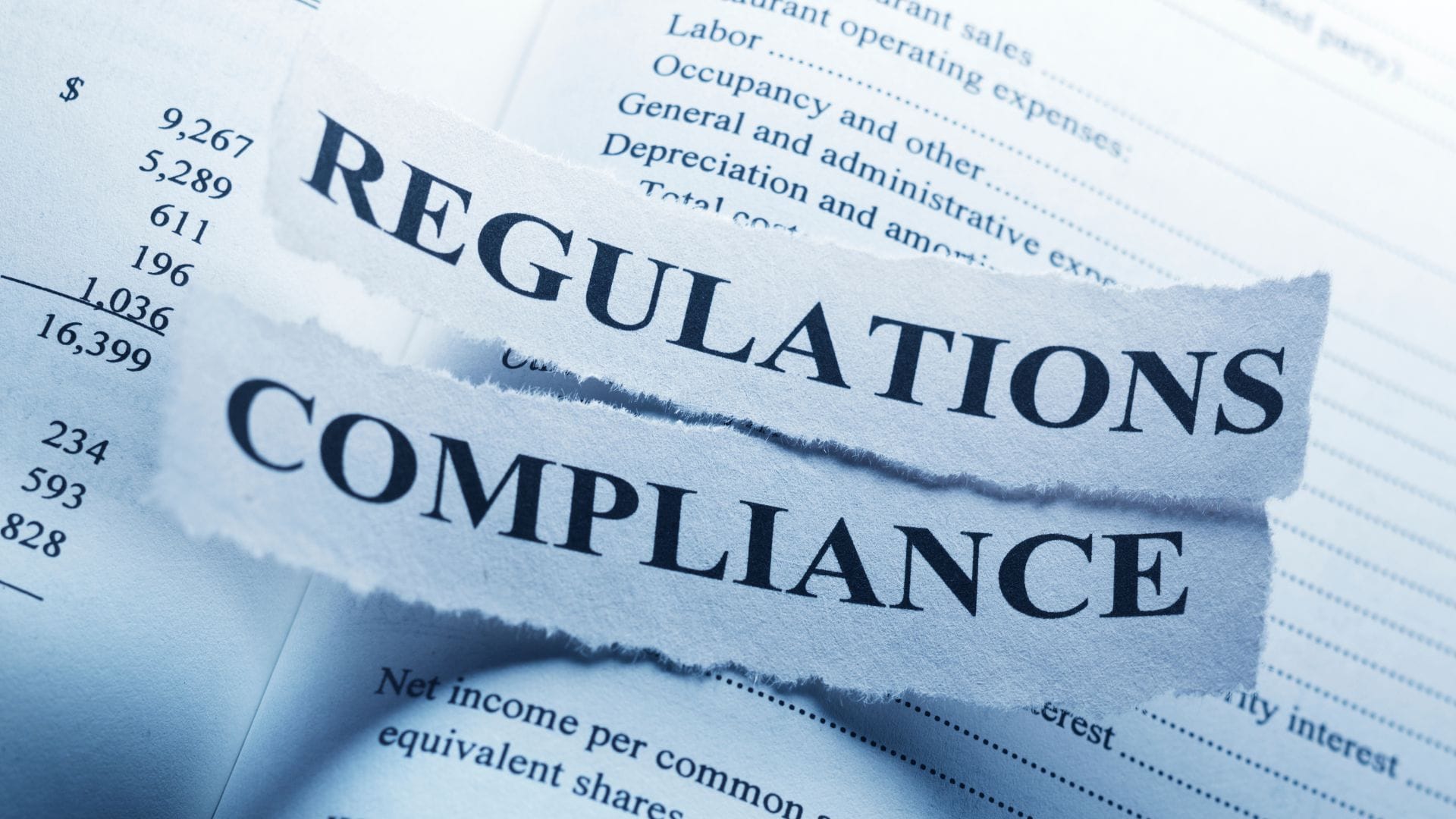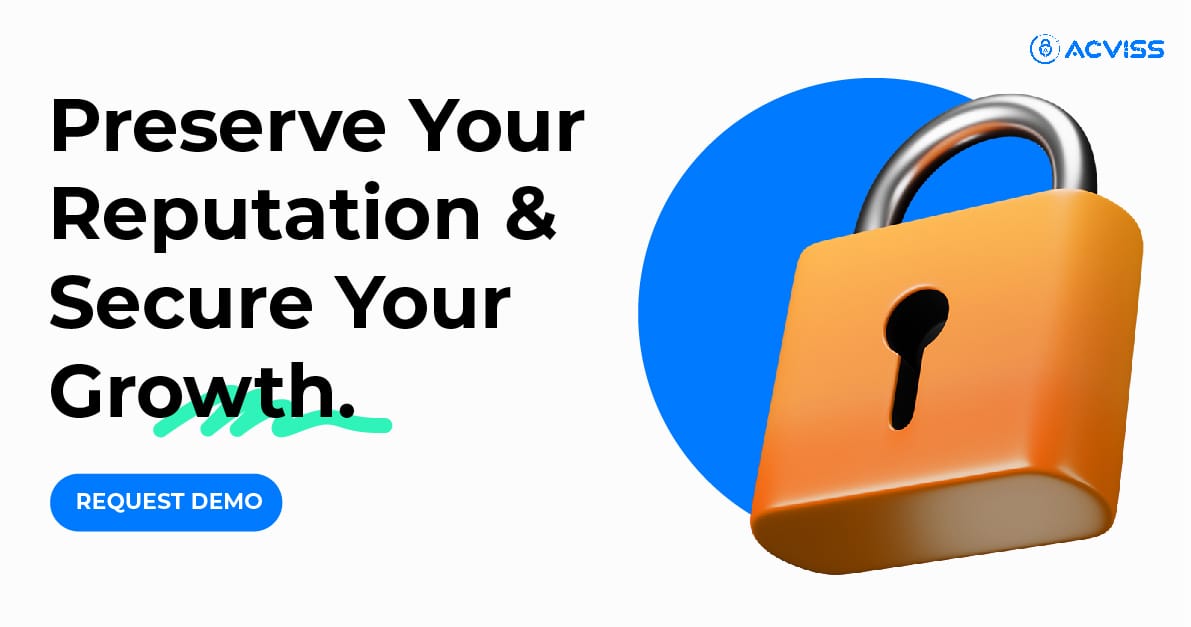Must-Know Regulatory Compliance Rules for Agriculture and FMCG Sectors in 2025

In 2025, compliance is a must. Especially in sectors like agro and FMCG, it is a business-critical necessity. One of the major reasons behind this is the criticality of the products, which also directly affects the consumers physically. With stricter laws, smarter regulators, and more informed consumers, non-compliance costs more than ever.
Not just being compliant, but apart from that, companies are now under pressure to be future-ready. From food safety to labelling, from traceability to digital recordkeeping, companies have to also anticipate what’s coming next if they want to survive in the market both from the regulatory companies and their competitors to maintain the brand image in from of their consumers, Add to that global trade shifts, climate mandates, and digital product passports, and it’s clear: standing still is no longer an option.
So, what does all this mean for your business?
In this guide, we’ll break down the essential compliance rules and regulations every agro and FMCG brand must know in 2025, and how technology can help you stay ahead. Whether you're a food exporter, coffee exporter, a consumer goods manufacturer, or a pharma brand manager, this is your go-to compliance checklist.
Let’s begin…
1. Food Safety and Quality Standards (FSSAI & More)
Food safety isn't just about hygiene; it's about trust, traceability, and legal protection. In India, the Food Safety and Standards Authority of India (FSSAI) governs all aspects of food production, processing, distribution, and sale. Every entity in the food value chain, from farm to fork, must be licensed or registered under FSSAI and follow its regulations.
FSSAI Mandates: What You Must Comply With
- Licensing & Registration: All food businesses must be registered or licensed, depending on their size and turnover.
- Food Safety Management System (FSMS): Implementation of a documented FSMS plan is mandatory.
- Labelling & Packaging: Accurate information regarding ingredients, allergens, nutritional facts, expiry dates, and vegetarian/non-vegetarian symbols is required.
- Inspections & Audits: Regular inspections and audits are conducted to ensure hygiene, sanitation, and compliance.
Failure to comply can lead to heavy penalties, product recalls, or cancellation of licenses.

Global Equivalents to Know
If you're exporting or partnering globally, you must also align with international food safety standards:
- FDA (U.S.): The Food and Drug Administration regulates food safety under FSMA (Food Safety Modernisation Act), focusing heavily on preventive controls.
- EU 1169/2011 (Europe): This regulation mandates comprehensive food labelling, allergen disclosure, and nutritional transparency.
Multinational FMCG and agro companies often follow Codex Alimentarius standards to maintain global compliance across markets.
Bottom line: Staying compliant with food safety standards is non-negotiable. Not only does it protect public health, but it also preserves your brand's credibility, especially in cross-border trade.
2. GS1 Compliance and Product Labelling
Clear, consistent labelling is no longer just good practice, it’s a legal and logistical necessity. GS1 compliance ensures standardised product identification and barcoding across global supply chains, allowing products to be tracked, traced, and sold seamlessly across borders and retail formats.
Standardised Barcoding and labelling
At the heart of GS1 compliance is the Global Trade Item Number (GTIN), a unique barcode that helps identify each product unit globally. These barcodes power inventory systems, e-commerce, retail billing, logistics, and even anti-counterfeiting mechanisms.
Key elements of GS1-compliant product labelling:
- GTIN barcode (EAN/UPC) for global identification
- Batch/lot number and expiry date
- Manufacturer details and product description
- Country of origin for traceability
Global retailers and e-commerce platforms often reject shipments without GS1 barcodes, making it a de facto requirement for market access.
Legal Metrology Rules in India
Beyond global standards, India enforces strict packaging norms under the Legal Metrology (Packaged Commodities) Rules, 2011. These rules govern everything from font size to the order of declarations.
Mandates include:
- MRP (inclusive of all taxes)
- Date of manufacture/packaging and expiry
- Net quantity in standard units
- Name and address of the manufacturer or importer
- Customer care contact information
Non-compliance can lead to fines, product seizure, or litigation under the Legal Metrology Act, 2009.
Bottom line: Product labelling isn’t just a box to tick, it’s the first impression your brand makes. GS1 compliance and Legal Metrology adherence build trust, improve supply chain efficiency, and keep your business on the right side of the law.
3. Supply Chain Traceability and Track & Trace Regulations
As global regulations tighten, traceability has moved from a “nice-to-have” to a legal necessity. For Agro and FMCG businesses, being able to track a product from origin to shelf, and even back, is now a key compliance requirement.
Why End-to-End Transparency Is Key
Modern supply chains are long and complex, often spanning multiple countries and compliance regimes. In this environment:
- One broken link can lead to costly recalls, import bans, or reputation damage
- Governments and consumers alike demand proof of origin, ethical sourcing, and authenticity.
Traceability isn’t just about logistics anymore; it’s about accountability, sustainability, and legality.

EUDR, DPP, and Import-Export Traceability
Several landmark regulations are reshaping how traceability works:
- EUDR (EU Deforestation Regulation)
Starting in 2025, exporters of commodities like cocoa, coffee, soy, and palm oil must prove that their products are not linked to deforestation. This includes geo-coordinates of origin and complete supply chain transparency. - DPP (Digital Product Passport)
Rolling out in the EU for sectors like batteries, textiles, and electronics, DPPs will soon extend to packaging and FMCG. They include details about materials, origin, repairability, and environmental impact, accessible via QR codes. - Import-Export Traceability Requirements
Countries like the U.S., the UK, and members of the EU now demand digital records of:- Supplier details
- Certificates of origin
- Proof of sustainable practices
- Supplier details
Failing to comply can lead to border detentions, shipment rejections, or long-term bans.
Bottom line: Traceability isn’t just about tracking your goods; it’s about earning market access and consumer trust. If you can’t trace it, you can’t sell it.
4. Anti-Counterfeiting and Pharma-Specific Compliance
The rise of counterfeit products poses a major threat to consumer safety and brand integrity, especially in pharma and high-value FMCG segments like cosmetics, supplements, and baby care. Compliance in these sectors goes beyond quality; it’s about ensuring product authenticity at every step.
Challenges in Pharma and High-Value FMCG
- Pharmaceuticals face a unique set of risks due to life-or-death stakes, strict storage conditions, and strict batch-level controls.
- High-value FMCG goods are frequent targets of counterfeiting and diversion, leading to reputational loss and regulatory backlash.
- Grey markets, online resellers, and cross-border leakages have made supply chain visibility and enforcement harder than ever.
Serialisation and Digital Verification Standards
To combat these issues, governments and global regulators now mandate robust anti-counterfeiting measures, including:
- Serialisation
Unique codes are assigned to every unit (bottle, box, blister pack) that allows tracking across the supply chain. Serialisation is a legal requirement in many countries, particularly in pharma exports. - Digital Verification Compliance
Standards such as:- 21 CFR Part 11 (U.S. FDA): Requires secure electronic records and signatures for drug manufacturers.
- EU Annexe 11: Focuses on computerised systems for GMP (Good Manufacturing Practice) compliance.
- 21 CFR Part 11 (U.S. FDA): Requires secure electronic records and signatures for drug manufacturers.
- These rules ensure digital records are tamper-proof, auditable, and trackable.
- QR Codes and Blockchain Verification
Cutting-edge technologies like dynamic QR codes and blockchain-based tagging allow consumers and regulators to instantly verify authenticity with a scan.
Takeaway: Anti-counterfeiting compliance is not just a pharma problem anymore. Every brand that deals with high-risk, high-value, or high-scrutiny products must adopt secure traceability and digital verification, or risk being taken off the shelf.
5. Environmental and Sustainability Compliance
Sustainability is no longer a buzzword; it’s now a regulatory requirement. In 2025, environmental compliance will become a core expectation, especially for agro and FMCG brands that deal with packaging, chemicals, and large-scale production. Governments worldwide are tightening standards to reduce environmental harm and promote circular economies.

Key Environmental Compliance Mandates
- ISO 14001
This international standard helps organisations build an Environmental Management System (EMS), ensuring they monitor, reduce, and report their environmental impact. It's not mandatory everywhere, but it's fast becoming a benchmark for responsible manufacturing and sourcing. - Extended Producer Responsibility (EPR)
Under EPR, producers are legally accountable for the entire lifecycle of packaging and plastic waste, even after the product is sold.
In India, EPR rules now cover:- Plastics and multilayer packaging
- Electronic and electrical waste
- Batteries and used oil. Producers must register, submit annual returns, and meet recycling targets, or face penalties.
- Plastics and multilayer packaging
- RoHS (Restriction of Hazardous Substances)
Originally an EU directive for electronics, RoHS-like regulations are expanding to packaging and agrochemicals. It restricts the use of toxic substances like lead, mercury, and cadmium in products that can leach into soil or water.
Climate Laws Impacting Agro & FMCG
Governments are introducing climate-related disclosure mandates and sector-specific controls. Some examples:
- Carbon emission limits on fertiliser and pesticide manufacturers
- Ban or restriction on single-use plastic and non-biodegradable packaging
- Mandatory carbon footprint labelling in certain EU and APAC markets
Takeaway: Brands that ignore sustainability will not only lose consumer trust, but they also risk fines, product recalls, or trade restrictions. Aligning with global sustainability frameworks today is essential for compliance tomorrow.
6. Consumer Protection and Transparency Regulations
Consumers today aren’t just buying products, they’re buying trust. In 2025, regulators are demanding higher transparency, accurate product claims, and ethical sourcing from agro and FMCG brands. Compliance isn’t just about legality anymore; it’s about accountability to the public.
Key Compliance Mandates
- Consumer Protection Act, 2019 (India)
This law holds brands accountable for false advertising, misleading claims, and product safety violations.
It empowers regulators to:- Recall unsafe products
- Impose penalties on misleading packaging or ads
- Protect consumer rights in digital commerce
- Recall unsafe products
- HFSS Rules (High Fat, Salt, Sugar)
New labelling rules are being rolled out for products high in fat, salt, and sugar, especially for packaged foods and beverages targeting children.
Some key updates include:- Mandatory front-of-pack warning labels
- Restrictions on advertising HFSS foods to minors
- Clear ingredient breakdowns to avoid misleading 'health halo' claims
- Mandatory front-of-pack warning labels
- Ethical Sourcing and Fair Trade
Modern supply chains must now prove ethical sourcing practices. This includes:- Avoidance of child labour or exploitative labour conditions
- Use of fair trade certified ingredients (like cocoa, coffee, spices)
- Transparent sourcing disclosures, often required under ESG reporting norms
- Avoidance of child labour or exploitative labour conditions
Market Trend: Rise of Clean Labels and Conscious Consumers
Consumers, especially Gen Z and millennial buyers, are actively choosing brands with:
- Short ingredient lists
- No artificial additives
- Verified sustainability claims
This has triggered a regulatory shift toward clean labelling, where every claim (e.g., “natural,” “organic,” “non-GMO”) must be backed by verifiable data or certification.
Bottom line: Transparency isn’t optional anymore. It's a regulatory and competitive necessity. Brands that invest in accurate labelling, clean formulations, and responsible sourcing will lead the market and avoid legal risk.
7. Data Integrity, Privacy, and Cybersecurity
As agro and FMCG companies go digital, from production tracking to e-commerce, data becomes both an asset and a liability. In 2025, regulatory frameworks demand not just collection, but secure handling, transparent usage, and traceable records of all digital data.
Why This Compliance Matters
Modern compliance isn’t just physical, it's digital and traceable. Whether it’s a barcode scan, batch recall record, or a consumer’s email address, every data point must be:
- Accurately stored
- Tamper-proof
- Easily auditable
Failing to ensure this opens businesses to legal penalties, data breaches, and supply chain disruptions.
Core Regulations and Standards
- ISO/IEC 27001
A global standard for managing information security management systems (ISMS). It mandates:- Risk assessments and mitigation strategies
- Defined roles for data access and control
- Secure encryption, cloud storage, and backups
- Risk assessments and mitigation strategies
- GDPR (General Data Protection Regulation)
Even non-EU companies must comply if they store or process data from EU-based users. Key mandates include:- Consent-based data collection
- Right to be forgotten
- Transparent data usage policies
- Consent-based data collection
- Audit Trails & Data Logs
Whether for FSSAI, EUDR, or export documentation, digital records must be maintained, timestamped, and tamper-evident. Regulators increasingly demand:- Immutable logs of all product movements and data changes
- Complete traceability from source to shelf
- Digital proof of compliance in case of audits or recalls
- Immutable logs of all product movements and data changes
Risk of Non-Compliance
- Data breaches can lead to legal action, consumer distrust, and loss of trade licenses
- Inadequate documentation can invalidate entire batches in regulated industries like pharma, dairy, or export foods
- Missing audit trails often result in failed inspections, import rejections, or suspension of digital commerce privileges
Bottom line: Data compliance is no longer IT’s problem; it’s a boardroom responsibility. Brands must implement secure systems, track data changes, and proactively protect both consumer and operational data.
8. Export-Import and Global Trade Compliance
For agro and FMCG businesses, crossing borders means navigating a minefield of regulations. Whether it’s a mango pulp exporter in India or a packaged snack brand expanding to Europe, compliance with global trade laws is no longer optional; it’s a barrier to entry.

About the Compliance
Export-import compliance covers everything from accurate labelling and phytosanitary certification to trade agreements and import restrictions. Regulatory divergence across regions adds complexity; what’s compliant in India may be banned in the EU or subject to quotas in the US.
This makes global compliance a continuous, dynamic process rather than a one-time checklist.
Key Requirements
- Custom labelling
- Varies by destination: EU 1169/2011 for Europe, FDA labelling for the US, GCC standards for the Middle East
- Mandatory inclusion of nutrition info, allergens, shelf life, and origin
- Barcodes, traceability codes, and even digital product passports may be needed
- Varies by destination: EU 1169/2011 for Europe, FDA labelling for the US, GCC standards for the Middle East
- Phytosanitary Rules
- Essential for plant-based products and perishables
- Requires certifications proving the absence of pests, diseases, or chemical residues
- Violations can result in import rejections or shipment destruction
- Essential for plant-based products and perishables
- Import Bans and Watchlists
- Several countries now prohibit imports linked to deforestation, child labour, or non-traceable sources (e.g., EUDR in the EU)
- Trade-sensitive categories like dairy, meat, chemicals, and packaging materials often have strict quotas or quality tests
- Several countries now prohibit imports linked to deforestation, child labour, or non-traceable sources (e.g., EUDR in the EU)
Evolving Global Standards and Divergence
- Lack of harmonisation is a growing pain. While some trade blocs are adopting similar digital compliance protocols, others are building region-specific requirements.
- The EU’s Digital Product Passport (DPP), for instance, demands far more traceability than ASEAN or African trade regulations.
- Companies must now deal with multiple compliance stacks, one for domestic and many tailored for each export market.
Pro tip: Failing to keep up can result in shipment holds, fines, or even permanent blacklisting from foreign markets.
9. Others: Additional Compliance Rules to Note
In addition to the key regulations covered above, here are some other compliance rules that businesses in the agro and FMCG sectors must be aware of:
- BIS (Bureau of Indian Standards): Ensures products meet quality standards for manufacturing and imports in India. Includes certifications for food, consumer goods, and electrical appliances.
- REACH (EU Chemicals Regulation): Mandates the registration, evaluation, and authorisation of chemicals in the EU, focusing on the safety of substances in products sold within the region.
- Agmark (Agricultural Certification in India): A certification program for agricultural products in India, ensuring the quality and authenticity of products like spices, pulses, and oilseeds.
- Insecticides Act (1968): Regulates the manufacture, sale, and use of insecticides in India to protect agriculture and public health from harmful substances.
- Drugs and Cosmetics Act (1940): Controls the manufacture, sale, and distribution of drugs, cosmetics, and medical devices in India, ensuring product safety and effectiveness.
- Customs (Prohibition of Import) Rules: Imposes restrictions on the import of certain goods (such as hazardous materials or banned substances), playing a crucial role in protecting public health and the environment.
Common Compliance Challenges for FMCG in 2025

The fast-evolving regulatory landscape presents a variety of challenges for FMCG businesses. Here are some of the most significant compliance hurdles companies will face in 2025:
1. Regulation Changes and HFSS Shifts
As regulations continue to evolve, particularly in response to health-conscious consumer trends and environmental concerns, FMCG companies need to stay agile. The High in Fat, Sugar, and Salt (HFSS) regulations are reshaping product formulations and marketing strategies. Constant changes in product labelling, health claims, and advertising restrictions across multiple markets require significant adaptation.
2. Supply Chain Disruptions
Supply chain transparency is becoming more complex, especially when considering the new compliance demands for track and trace (GS1, EUDR). Global disruptions, such as geopolitical tensions, climate change, and logistical challenges, can make it difficult to maintain compliance and consistency in product availability.
3. Resource Shortages and Tech Integration Gaps
The shortage of skilled professionals in the compliance space is increasingly problematic. Many FMCG companies face difficulties in finding compliance experts who can bridge the gap between legal, IT, and operations teams. On top of that, integrating new technologies like RegTech and automated compliance platforms with existing systems can be a daunting task.
4. Data Protection and Cybersecurity
As more FMCG companies rely on digital tools for traceability and supply chain transparency, the need for robust data protection systems becomes essential. Regulatory frameworks like GDPR and ISO/IEC 27001 require secure, audit-ready data systems. Non-compliance or breaches in cybersecurity can lead to severe reputational damage and legal consequences.
5. Cross-Border Regulation Friction
FMCG companies that operate across borders face the challenge of navigating divergent regulatory environments. Different standards for product safety, labelling, and traceability can create legal risks, operational inefficiencies, and barriers to market entry. Companies need to ensure that they are compliant with local rules in multiple regions while adapting to international guidelines.
6. Sustainability and Environmental Laws
Environmental laws are tightening, and FMCG companies must comply with a growing list of sustainability and green certifications (e.g., ISO 14001, Extended Producer Responsibility (EPR)). Adapting to these changes can increase operational complexity and costs, particularly in areas like plastic packaging and ethical sourcing.
7. Consumer Transparency Demands
As consumers become more health-conscious and demand ethical sourcing practices, FMCG companies must align their practices with these expectations. The rise of the clean-label trend means that companies must ensure that product ingredients and sourcing practices are fully transparent. Failing to meet these growing expectations can lead to brand erosion and loss of customer trust.
8. Sustainability in Packaging and Waste Management
With increasing pressure from regulators and consumers to reduce single-use plastics and improve recyclability, FMCG companies must overhaul their packaging strategies. Compliance with waste management and recycling regulations is becoming critical, and any failure to comply could result in fines and damage to brand reputation.
Best Practices: How to Stay Compliant in a Changing World
In a rapidly evolving regulatory environment, FMCG companies must adopt proactive strategies to stay ahead. Below are some best practices that can help businesses stay compliant and avoid costly fines or disruptions.
1. Build Agile Compliance Teams
One of the keys to staying compliant in the face of ever-changing regulations is flexibility. Create a multidisciplinary compliance team that is agile enough to respond quickly to new laws, regulations, or internal policy changes. Ensure your team has a deep understanding of legal, operational, and technological aspects of compliance. Cross-functional collaboration between legal, IT, and operations teams ensures that compliance is ingrained into every aspect of the business.
2. Automate Traceability and Product Verification
With regulations becoming more stringent, manual tracking systems are no longer sufficient. Implement automated traceability tools to track products at every stage of the supply chain. Use AI-powered verification tools for product labelling, quality checks, and serialisation to ensure compliance with global standards like GS1 and EUDR. Automation reduces the likelihood of human error and increases efficiency in meeting regulatory demands.
3. Partner with Trusted Digital Compliance Platforms
Leverage RegTech solutions and digital compliance platforms to streamline compliance tasks. These platforms can help with everything from automated documentation to real-time regulatory updates. Choose partners with a proven track record in delivering solutions for your specific industry needs.
For example, Acviss offers tailored solutions for seamless compliance in sectors like food safety, traceability, and data privacy, making it easier for FMCG businesses to comply without overwhelming their teams.
4. Implement Continuous Monitoring and Auditing
Regularly assess your compliance status with continuous monitoring and auditing systems. This approach helps identify potential compliance gaps before they become significant issues. Real-time audits and data integrity checks ensure that your operations remain within regulatory boundaries at all times. Digital tools that integrate compliance checks directly into business operations can help streamline this process.
5. Foster a Compliance-Centric Culture
Encourage a compliance-first mentality throughout the organisation. Compliance should not be seen as an afterthought or a burden but as an integral part of business operations. Provide regular training sessions for employees at all levels to stay informed about new regulations and best practices. This also ensures that compliance responsibilities are shared across all departments.
6. Use Data Analytics for Risk Assessment
Employ advanced data analytics to predict and mitigate compliance risks. By leveraging big data and predictive analytics, FMCG companies can gain insights into potential compliance issues before they arise. This proactive approach enables businesses to address risks early on, thus avoiding costly fines and penalties.
7. Stay Updated with Regulatory Changes
Regulations evolve quickly, and staying informed is vital. Subscribe to industry newsletters, regulatory updates, and compliance webinars to keep your team in the loop about new rules and changes in existing laws. Establish a system to ensure that compliance updates are seamlessly integrated into daily operations, so your business is always prepared for any changes.
8. Ensure Data Protection and Cybersecurity Compliance
With more companies relying on digital platforms for compliance, ensuring that your cybersecurity and data protection practices meet industry standards is crucial. Protecting customer data and sensitive business information with the latest cybersecurity protocols (such as ISO/IEC 27001 and GDPR) will help mitigate risks associated with data breaches and non-compliance.
9. Engage in Collaborative Industry Initiatives
Join industry groups, standards organisations, or compliance networks to collaborate on best practices and share insights. These communities can help keep you up-to-date on industry-wide changes, best practices, and compliance challenges that are unique to your sector.
10. Incorporate Sustainability Into Your Compliance Strategy
Sustainability is a growing area of concern for regulators worldwide. Make sure that your compliance strategy integrates environmental regulations, sustainable sourcing, and waste management practices. Staying ahead of sustainability trends will help future-proof your business, particularly when new rules around packaging waste and carbon emissions are introduced.
Tech-Driven Digital Compliance Solutions (India and Beyond)
Industries have rapidly digitised, which has created new opportunities and challenges in the realm of compliance. The key to staying compliant in 2025 and beyond lies in adopting automation, AI tools, and RegTech solutions that enable real-time tracking, documentation, and updates in compliance management.
1. Benefits of Automation, AI Tools, and RegTech
Automation, AI tools, and Regulatory Technology (RegTech) are transforming the landscape of compliance management.
- Automation helps businesses reduce manual intervention, minimise human errors, and streamline processes.
- AI-powered tools assist in predictive compliance by analysing patterns, identifying risks, and automating decision-making processes.
- RegTech solutions are designed specifically for regulatory compliance, helping businesses manage and monitor regulations across multiple regions. They offer tools like automated document verification, compliance reporting, and real-time monitoring of changes in laws and regulations.
By integrating these technologies, companies can save time, reduce costs, and enhance their ability to stay ahead of compliance requirements across jurisdictions.
2. Role of Different Types of Technology
Different types of technology play vital roles in digital compliance solutions:
- Blockchain: In supply chain traceability, blockchain offers an immutable, transparent record of transactions, making it ideal for EUDR and DPP compliance. This technology provides end-to-end visibility, ensuring that products are traceable from source to consumer.
- Cloud-based solutions: Cloud technology allows businesses to store compliance data securely and ensures real-time access for auditing purposes. These solutions make it easier for companies to stay compliant with GDPR, FSSAI, and other regulations without worrying about data loss or downtime.
- Artificial Intelligence (AI) and Machine Learning (ML): AI and ML can predict regulatory risks, analyse trends, and provide actionable insights. These technologies also automate the verification of product authenticity, which is crucial in anti-counterfeiting measures and compliance with pharmaceutical and high-value FMCG regulations.
- Internet of Things (IoT): In industries like food safety, IoT devices help track product conditions such as temperature, humidity, and expiration dates. These devices can provide real-time data, ensuring compliance with food safety regulations and quality standards.
- Data Analytics: Data analytics tools help businesses quickly identify discrepancies in compliance data and predict areas of risk. This ensures that companies can take corrective actions before regulatory violations occur.
3. Integration with Existing Systems
For FMCG and agro businesses, compliance tools should be seamlessly integrated into the company's ERP, supply chain management, and inventory systems. This helps ensure that all compliance activities, such as product labelling, traceability, and data privacy, are automatically aligned with internal workflows.
- ERP Integration: Compliance software that integrates with enterprise resource planning (ERP) systems allows companies to automate reporting, document tracking, and data entry.
- Supply Chain Integration: Integration with supply chain management systems enables real-time tracking of product origin, production, and distribution. This is especially important for compliance with traceability regulations, such as EUDR and DPP, where transparency is key.
- Data Management: Compliance solutions should integrate with existing data management systems to ensure that audit trails and data logs meet legal standards.
This seamless integration ensures that compliance is maintained without requiring complex system overhauls and allows businesses to continue operating smoothly without disruptions.
4. Why Acviss Is Future-Ready for Compliance
Acviss is leading the way in offering tech-driven, future-ready compliance solutions for FMCG and agro industries. Acviss provides a robust suite of automation tools, AI-powered compliance monitoring, and real-time traceability solutions to ensure that businesses can manage compliance seamlessly across different regions. With Acviss:
- You can automate traceability, product verification, and documentation processes.
- Stay updated on the latest regulatory changes across multiple jurisdictions with real-time alerts and reporting tools.
- Benefit from a comprehensive, cloud-based platform that integrates with your existing ERP and supply chain systems, minimising disruptions while maximising efficiency.
- Get expert guidance on sustainability and EUDR compliance, leveraging cutting-edge technology to future-proof your business.
Whether you're dealing with food safety, anti-counterfeiting, or data privacy, Acviss offers tailored compliance solutions that help you stay ahead of the curve.
Ready to ensure compliance and drive business growth? Leverage Acviss for the next level of digital compliance management.
Conclusion
Staying compliant isn’t just about avoiding penalties; it’s about securing a competitive edge. Proactive compliance can unlock growth opportunities, establish trust with consumers, and open doors to global markets.
Regulations are evolving across different regions, and businesses that take a forward-thinking approach to compliance will set themselves apart. For companies in the agro and FMCG sectors, embracing compliance as a strategic advantage is no longer optional. It’s essential for staying ahead of competitors and securing long-term success in an increasingly regulated world.
The key takeaway? Compliance isn’t a burden; it’s a pathway to stronger brand loyalty, global expansion, and operational excellence.
Acviss is here to help you stay compliant and future-ready with cutting-edge technology. Acviss, as a solution, offers automated traceability, real-time updates on regulatory changes, and seamless integration into your systems, all designed to give your business the edge it needs to thrive in 2025 and beyond. Get in touch with Acviss today and empower your business with smarter, tech-driven compliance solutions.
